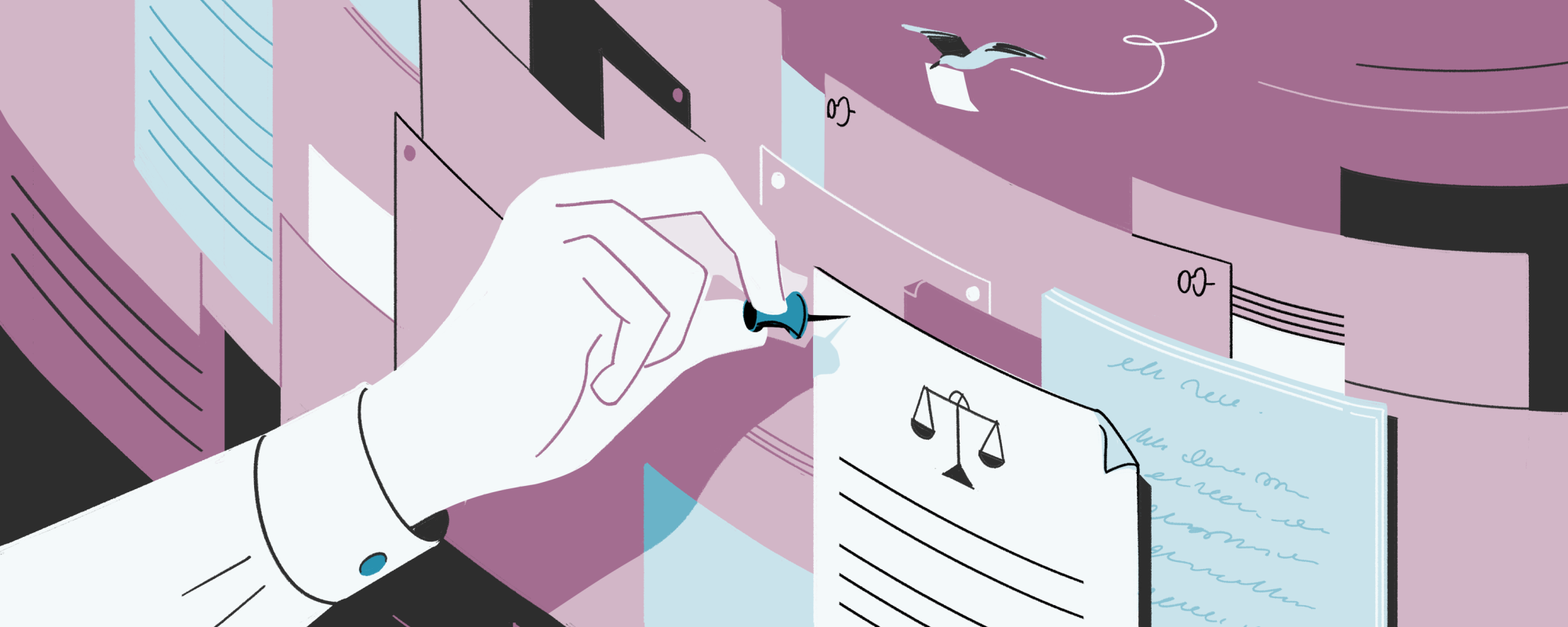The OVD-Info advocacy division has been operating for several years. We would like to explain what advocacy is and what progress we made in this area.
What is advocacy?
Advocacy as we see it at OVD-Info refers to efforts to promote human rights in Russia. In the face of war and repressions, Russia’s domestic legal protection mechanisms and instruments to influence the state are not working. Therefore, now the bulk of our advocacy efforts are directed towards international institutions.
What kind of work is the advocacy team doing at OVD-Info?
We prepare reports and communications on the human rights situation in Russia and send them to the UN, the OSCE, the Council of Europe, etc. Our lawyers participate in consultations, conferences, and other events that focus on human rights. In our work we always rely on our data as well as other information on political persecution in Russia.
One of the primary tasks of the advocacy team is to systematise, document, and bring to light years of repressions in the country. It is important for us that people not only in Russia but also abroad become aware of it. We also help protect legal rights of private citizens and to draw attention of the international community to cases of individual victims who had suffered from the actions of the Russian authorities.
At the moment, how could the UN and other organizations influence the situation with human rights in Russia?
When it comes to human rights, international organisations vary in their scope and level of authority: Some organisations identify instances of human rights violations, while others — make recommendations for countries or issue public statements. However, implementation of those decisions is to a large extent up to the state concerned. Currently the international community does not have too many tools to ensure fulfilment of international obligations.
The Russian Federation is a participating state in the UN, the OSCE and many other international conventions, and as such has human rights obligations. But the Russian authorities made it clear a long time ago that they had no intention of complying with decisions of international bodies they do not like. In a situation like this, it is almost impossible to talk about quick results. Yet we believe it is important to create conditions for future change now.
The UN and other international institutions help Russian civil society achieve this goal. They analyse, systematise, and document years of systemic human rights violations; they also compile recommendations on how to improve the situation. For example, in 2022 the UN Human Rights Committee prepared concluding observations on the 8th periodic report of the Russian Federation, which analyses how the authorities (fail to) fulfil their commitments on civil and political rights. International institutions often use our reports, communications, data, and other information on violations collected by OVD-Info. The results of this work will provide a point of reference for changes in Russia once there is a window of opportunity.
Also, international bodies use their influence to draw public attention to individual cases of human rights abuse. For instance, the Special Procedures of the Human Rights Council issued statements in support of Oleg Orlov, Vladimir Kara-Murza, Elena Milashina and many others who had suffered from the actions of the Russian authorities. Such statements not only inform the public about repressions, but they also express support and solidarity. In addition, the UN Working Group on Arbitrary Detention reviewed the case of Aleksey Gorinov. The experts found his deprivation of liberty for anti-war statements unlawful and demanded to release Mr. Gorinov immediately.
What are success stories of the OVD-Info advocacy team?
Behind our successful cases are OVD-Info data and expertise, which we use in our reports and while communicating with international institutions. This work helped us achieve two significant victories.
- Following OVD-Info’s recommendations, in July 2022 OSCE participating States invoked the Moscow Mechanism. This instrument analyses to what extent the country concerned fulfils its OSCE human rights commitments. Angelika Nußberger was appointed as an expert; she prepared an extensive report on the situation with human rights in Russia. To that end, she conducted interviews with representatives of Russian civil society, including OVD-Info, as well as collected written information. We also prepared and forwarded a report, where we provided our data on political repressions in the country and articulated specific recommendations. Much of this was reflected in Angelika Nußberger’s report.
- In October 2022, the UN Human Rights Council (UNHRC) established the mandate of Special Rapporteur on Russia with a view to gather, study, and assess all available information on human rights violations in the country. The OVD-Info advocacy team had a lot to do with it: for a long time we were issuing statements, meeting with diplomats from different countries, taking part in numerous events, and writing articles to convince the UNHRC member states to establish this mandate.
In May 2023, Mariana Katzarova, a human rights activist from Bulgaria, was appointed as the mandate holder. Among other things, she led Amnesty International investigations in Russia for 10 years. In the space of only a few months, she prepared a comprehensive report on the situation of human rights in Russia, considered individual submissions, issued statements in support of political prisoners, and took part in events along with representatives of Russian civil society. OVD-Info lawyers regularly provided data and other information on political persecution and human rights violations to the Special Rapporteur. She subsequently used these data in her UN report and other statements. In October 2023, her mandate was extended for another year.
We continue to engage with international institutions and talk about repressions and human rights violations in Russia. You can follow our work on the Advocacy page on the OVD-Info website.
If you have any questions for the Advocacy team, please contact us at data@ovdinfo.org



